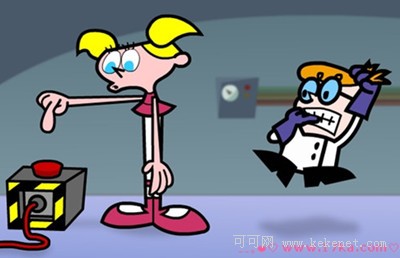Blair: Bet's off.
一切都不玩完了。
Chuck: But the game's not over.
但是游戏还没结束呢。
Blair: I'm calling it on account of boredom. You were right. Vanessa's not worth playing with.
我之所以这么说是因为太无聊了。你是对的,Vanessa不值得我们陪她玩。
Chuck: Maybe she is, maybe she isn't. Why the sudden change of heart?
也许吧,谁知道呢。为什么突然改主意了?
Blair: Like I said, the whole thing is dull. Pursuing Vanessa is beneath us both.
我说过了,这一切都太无聊了。追着Vanessa不放只会降低我们的身份。
——Gossip Girl

on account of:由于,因为
Bill cannot come to the meeting on account of illness.
比尔因病不能到会。
We're late on account of the bad traffic.
我们迟到是因为交通拥挤。
要注意:on account of ,because of ,due to , owing to , 和 thanks to 的用法比较
这一组词都表示"由于"的意思,在使用时应该注意以下区别:
1.because of意为"由于,因为",强调因果关系,在句中仅作状语,修饰句中的一部分,与其他成分不用逗号隔开。如:??
We must not get discouraged because of such a minor setback.我们决不可因为这样一个小小的挫折而灰心丧气。
2.owing to与because of一样,也强调因果关系,除作状语外,也可作表语。作状语时修饰整个句子,可在句首或句末,用逗号隔开。如:
They decided to cancel the flight,owing to the storm. 由于这场暴风雨,他们决定取消这个航班。
3.due to引出造成后果的原因,在句中作表语、状语和定语。作表语和状语时与owing to同义,作状语时,一般不与其他成分隔开。如:
This accident was due to(owing to)his careless driving.这次车祸是由于他开车疏忽大意造成的。
4.on account of与because of,owing to同义,但语气较为正式。可作状语、表语,不作定语。如:
He could not come on account of his illness.他因病不能前来。
5.thanks to表示"幸亏,多亏"多用于表达正面意思,相当于感谢,在句中作状语和表语。如:
Thanks to your advice,much trouble was saved.多亏你的建议,减少了许多麻烦。












